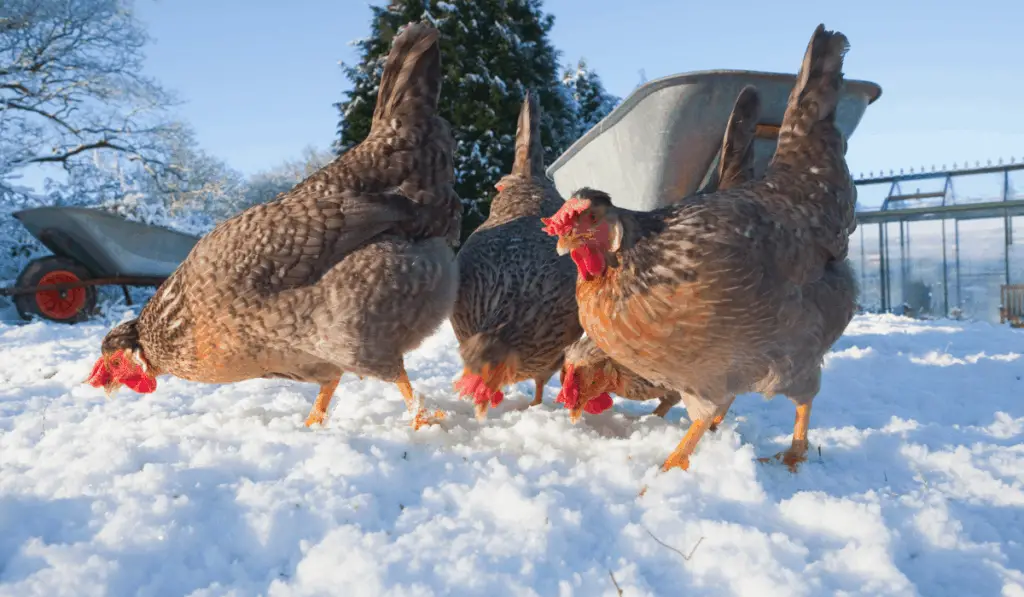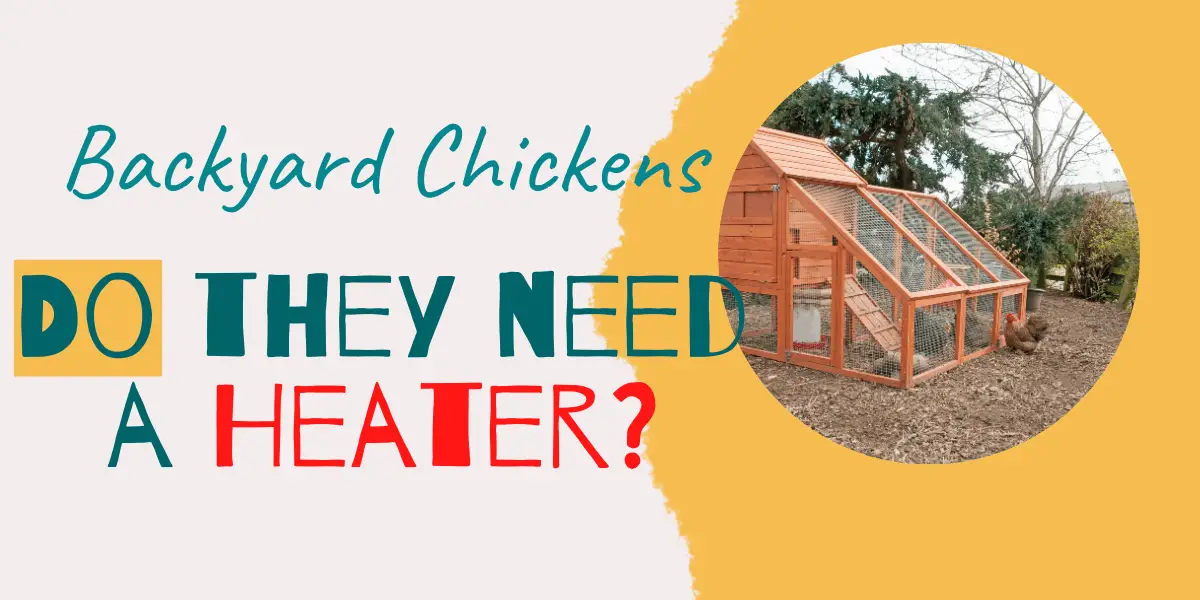Chickens are generally quite well adapted to deal with varying temperatures and can cope with colder temperatures much easier than a human can.
In fact, chickens are better suited to dealing with cold weather than they are warm temperatures, however, that doesn’t mean we shouldn’t consider their wellbeing over the cold winter months.
This then leads to the question of whether or not chicken coops need heat to help keep your chickens warm.
Chicken coops do not need to be heated unless they are subjected to below freezing temperatures for an extended period of time lower than -10F. Chickens are well adapted to handling the cold weather and will fluff up their feathers, regulate their metabolism, and roost close together in order to maintain body heat so human intervention should be kept to a minimum.
While heating a chicken coop might seem like a good idea or even a necessity, there are only certain circumstances when this would be needed and excessively heating a coop could cause more harm than good to your chickens.
Table of Contents
Do Chicken Coops Need Heat?
It’s easy to want to keep your chickens as warm and comfortable as possible during cold winter months, however, we often confuse our chickens’ needs with our own.
Chickens have a natural ability to adapt to cold conditions by fluffing up their feathers (some have feathers that are actually suited to cold weather), regulating their metabolism, and roosting together in groups to maintain body heat.
While it’s natural to think human intervention is needed to warm up a coop during winter months, it’s often not needed. Below we cover some of the factors to consider to ensure your coop provides adequate warmth as well as the times when you need to supply some additional heating.

How to Properly Heat a Chicken Coop?
When considering whether your chicken coop needs to be heated, there are a few factors that need to be taken into consideration:
- External Temperature – This is perhaps the most important factor as chickens need to be able to adapt to certain temperatures in order to regulate their own core temperatures. Therefore, you shouldn’t heat a coop unless temperatures are below freezing as a result of sudden drops.
- Size of Coop and Number of Chicken – A small coop with quite a few chickens will maintain heat better than a large coop with very few chickens. If your coop is the latter, then this is perhaps a time when you will need to look into some additional sources to provide heat for your chickens.
- Ventilation – Keeping a cold draft out of your coop is essential for maintaining warmth, however, you don’t want to prevent airflow and ventilation completely. To keep your coop warm you should look for any gaps that are letting in a draft and seal these properly to help prevent heat loss and also to reduce any draft coming in.
- Do Chicken Coops Needs to Be Insulated – When buying or building your own coop, it’s important to ensure that the walls are properly insulated. This will not only help to keep your chickens warm in the winter but also cool in the summer. A well-insulated coop will help to eliminate the need for any external heat sources to be added.
If you’ve factored in the above and feel you still need to heat your coop to keep your chickens warm then there are a few options available. Heat lamps are the most commonly used item but also the most dangerous.
Heat lamps are a fire hazard in coops and can risk setting straw, hay, and even feathers alight resulting in a coop fire. The video below gives a good overview of why heat lamps are not necessary with the fire hazard being an unnecessary risk.
If you do decide that your hens need a bit of heat then we suggest ceramic heat lamps that will not pose a fire hazard or risk. They are available online from Amazon. See the prices here.
A deep litter method is one of the better tactics you can use to keep your coop heated if you are an experienced chicken keeper or a radiant panel heater is the better alternative to a heat lamp. These two methods will help to provide heat to the coop without interfering with the chicken’s natural coping ability.
What temperature is too cold for chickens?
Chickens are pretty hardy animals. They don’t prefer the cold, but if they have a coop to warm up in they can tolerate external temperatures of 30 degrees F.
When should you heat a chicken coop?
You don’t need to heat a chicken coop, and heating the coop could do more harm than good. Your chickens can get really sick if the temperature difference between inside the coop and outside is too drastic.
Can chickens survive without a heat lamp?
Yes, your chickens will be fine without a hear lamp. If chickens are cold they will huddle to keep warm.
Do chicken coops need to be insulated?
Yes. If you experience any wind conditions or cold weather your coop needs to be insulated to keep drafts out and provide your chickens with a warm place to sleep.
How do I keep my chickens warm in the winter without electricity?
If you insulate your coop, provide a deep layer of litter, update your coop to have ventilation, and use a greenhouse method to trap heat you can keep your chickens warm without electricity.
In Summary
When looking to heat a chicken coop, it’s vital to ensure this is out of necessity and not an assumption because of how cold you personally are.
Chicken coops only need heating if the cold weather is extreme (sub-freezing levels) or if there aren’t enough chickens in a larger coop to maintain heat.
When heating a coop ensure that you don’t use a heat source that could fail, subjecting your chickens to sudden temperature drops or one that could risk causing a fire, and most importantly, make sure the chickens don’t become reliant on this heat source.




